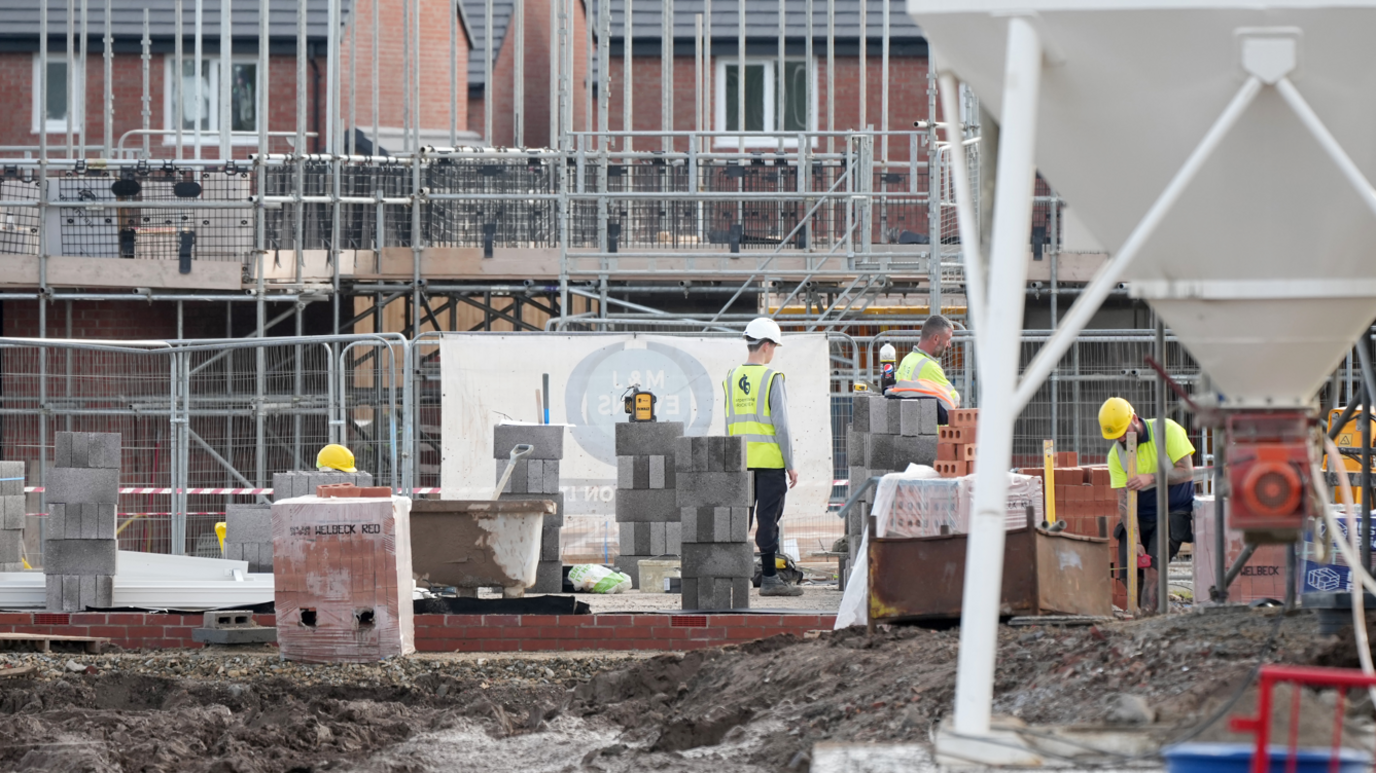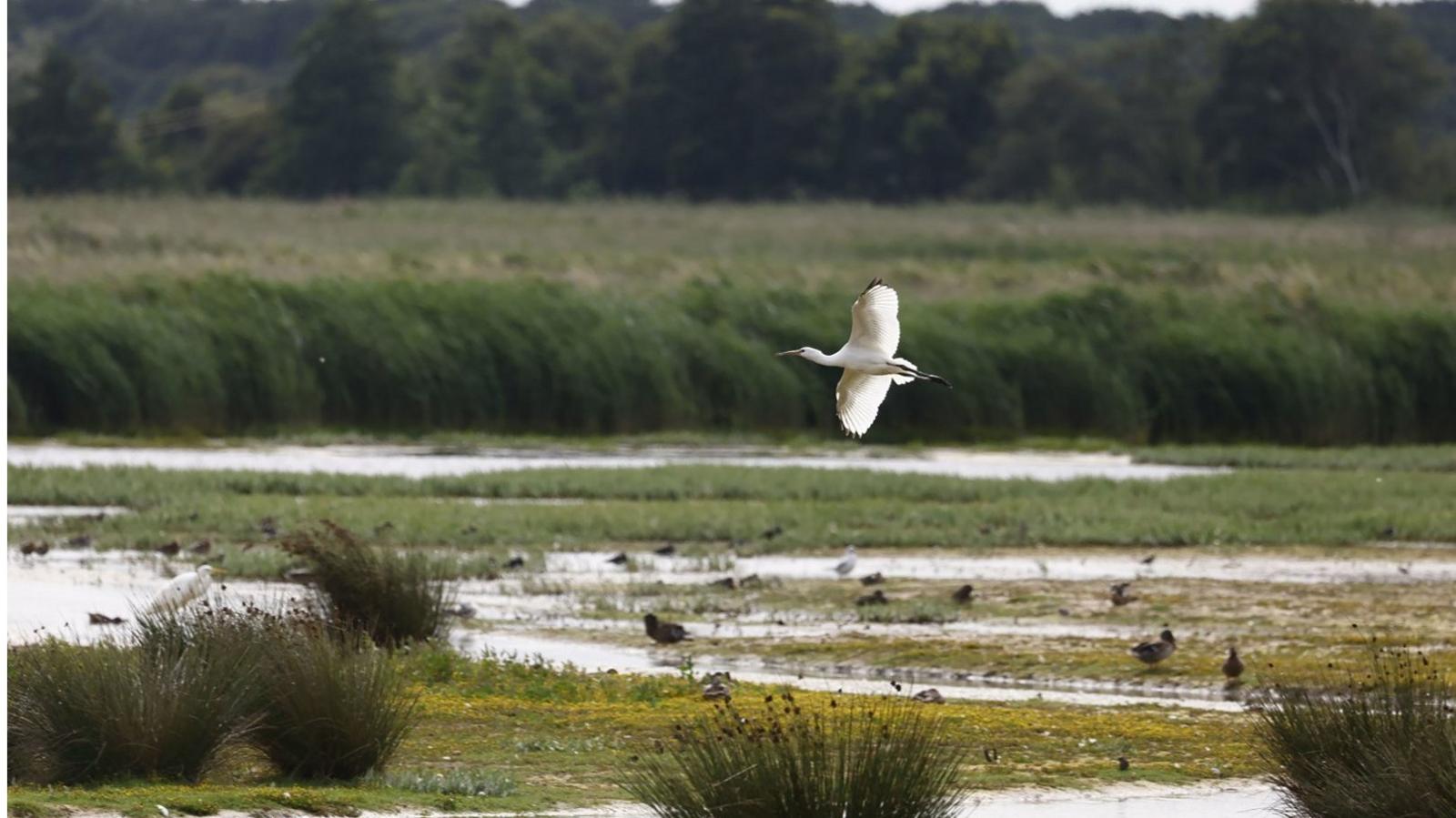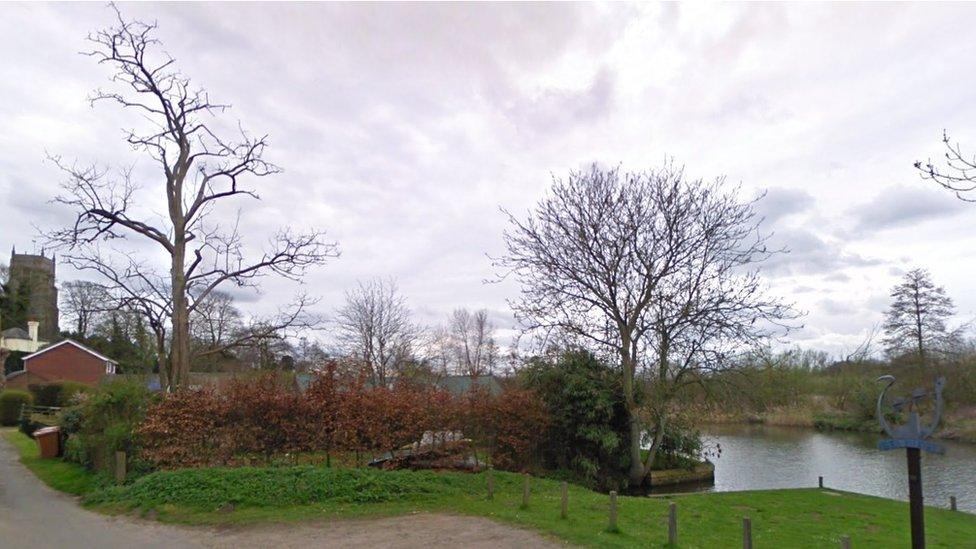County handed £9.6m to restart housing plans

Planning permission for 16,000 homes have been put on hold because of pollution levels
- Published
The government has handed over £9.6m to councils in Norfolk in an attempt to restart housebuilding in parts of the county.
Planning permission for more than 16,000 homes has been on hold for the last two years because of concerns about pollution levels in the River Wensum and on the Broads.
The money will fund mitigation measures that include paying farmers not to keep livestock near rivers.
Councils say it will help reduce pollution levels and allow them to resume planning permissions for new homes.
Norwich, Broadland, South Norfolk, Breckland and North Norfolk councils stopped giving permission for new homes close to the waterways after Natural England - the body that advises on environmental matters - expressed concerns about the high levels of pollution.
It said no more homes should be built until measures were put in place to mitigate the impact that sewage from the new properties would have on river nutrient levels.
'Stuck in the system'
It is hard for individual developers to provide the necessary mitigation, so the local councils have come up with a county-wide solution which the government has now agreed to help fund.
Local government minister, Lee Rowley, who visited a housing estate at Beeston near Norwich, said: "We have seen too many homes stuck in the planning system.
"This government backs the builders and not the blockers.
"This fund will help unlock new housing in catchment areas like Norfolk, supporting councils to build more homes that local communities want and need."

Minister Lee Rowley told a meeting of councillors it was "brilliant news" that everyone was working together to solve the problem
The money will be recouped by selling licences to developers for every new house they want to build.
The money has so far been used to pay a farmer to stop keeping pigs near a river.
"Pigs generate a large amount of nutrients that find their way into the watercourses," said Phil Courtier, the director of Broadland and South Norfolk councils.
He added: "The farmer has agreed not to put pigs and livestock on the land for 80 years, which has allowed us to mitigate for 1,200 new homes."
Other farmers in the area would be approached "if appropriate and in the right location", he said.

Phil Courtier, from Broadland and South Norfolk councils, said the new mitigations were allowing new homes to be built again
Mr Courtier said other mitigation measures were also going to be funded.
The councils have just signed a deal to convert 100 private septic tanks and hope to roll out the scheme to include every septic tank in the affected area, possibly as many as 12,000.
He accepted that charging developers for permission to build would add to the cost of new homes in Norfolk, but added: "This is a problem we would prefer not to have, but at the moment there is no other way to address this."
'Good start but not enough'
Environmental groups said the nutrient neutrality measures were a start but needed to go further.
Norwich Green Party councillor Gary Champion said: "Instead of improving the water we are just removing one source of pollution and replacing it with another, so the river is still polluted.
"We really should be taking measures to bring overall pollution levels down."
The government said it had designated a number of areas in the country, including the Broads and River Wensum, in which water companies were required to upgrade wastewater treatment works by 2030.
Got a story? Email eastofenglandnews@bbc.co.uk, external or WhatsApp us on 0800 169 1830
Related stories
- Published23 November 2023

- Published28 March 2024
